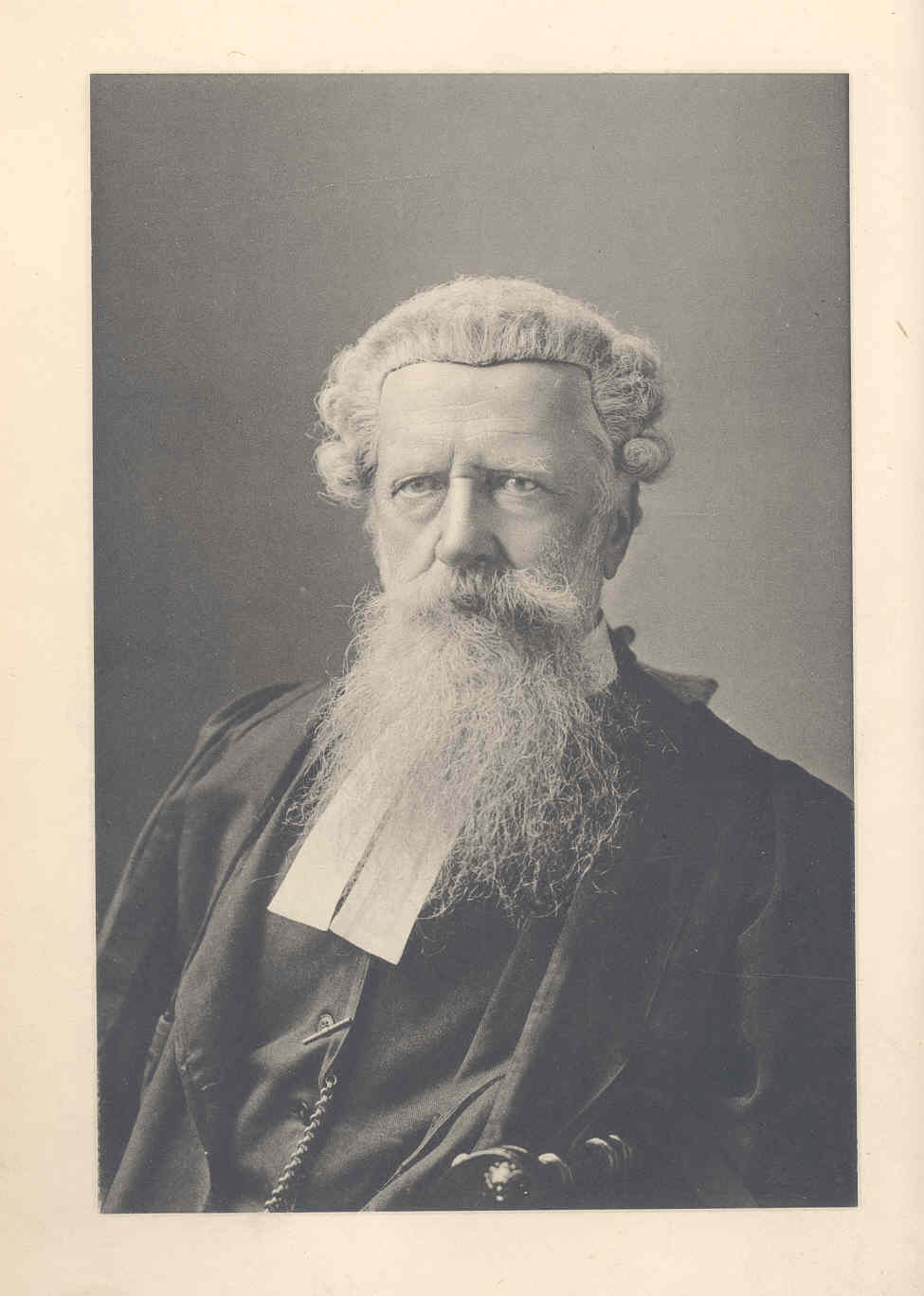John Pym Yeatman on:
[Wikipedia]
[Google]
[Amazon]
 John Pym Yeatman (1830–1910) was a
John Pym Yeatman (1830–1910) was a
/ref>
''An exposure of the mismanagement of the Public record office'' (1875)
''Some observations upon the law of ancient demesne'' (1884)
''The early genealogical history of the House of Arundel'' (1882)
''The Feudal History of the County of Derby'' (1886)
''The history of the borough of Chesterfield'' (1890)
 John Pym Yeatman (1830–1910) was a
John Pym Yeatman (1830–1910) was a barrister
A barrister is a type of lawyer in common law jurisdictions. Barristers mostly specialise in courtroom advocacy and litigation. Their tasks include taking cases in superior courts and tribunals, drafting legal pleadings, researching law and ...
and influential proponent of British Israelism
British Israelism (also called Anglo-Israelism) is the British nationalist, pseudoarchaeological, pseudohistorical and pseudoreligious belief that the people of Great Britain are "genetically, racially, and linguistically the direct descendant ...
. He has been described as "outspoken, quarrelsome, no respecter of rank and reputation and cursed with a self-destructive streak".
Life
Yeatman obtained a degree in law at Emmanuel College, Cambridge and later became a Fellow of theRoyal Historical Society
The Royal Historical Society, founded in 1868, is a learned society of the United Kingdom which advances scholarly studies of history.
Origins
The society was founded and received its royal charter in 1868. Until 1872 it was known as the Histori ...
, he authored several successful works on law and history. His ''An Introduction to the Study of Early English History'' (1874) was widely read upon its release and received favourable reviews by historians.
Yeatman married Charlotte McDonough, daughter of Captain Alan McDonough, of Athgarvan Lodge, Curragh, Ireland. The Yeatmans both converted to Catholicism.
Yeatman worked as a lawyer in the Midlands Circuit, but resigned after a dispute in which he supported another lawyer. When he applied for readmission, he was rejected. Blaming Lord Esher
Viscount Esher, of Esher in the County of Surrey, is a title in the Peerage of the United Kingdom. It was created on 11 November 1897 for the prominent lawyer and judge William Brett, 1st Baron Esher, upon his retirement as Master of the Rolls ...
for his woes, Yeatman accused him of participation with others in a "conspiracy to destroy his career", claiming "an additional 10,000 pounds for
alleged slander from the bench".Taggart, Michael, "Alexander Chaffers and the Genesis of the Vexatious Actions Act 1896", ''The Cambridge Law Journal'', Volume 63, Issue 03, November 2004, pp 656-684 He was unsuccessful. Yeatman pursued his vendetta against Esher in ''The Judicature Quarterly Review'', only one issue of which ever appeared, published in January 1896 and entirely written by Yeatman. The contents were noted for "pouring vitriol over all and sundry", but especially Esher.
In his book ''The Gentle Shakspere: A Vindication'', Yeatman attempted to prove that Shakespeare was a devout Roman Catholic whose works communicated his beliefs and who hated Queen Elizabeth. He also claimed that Shakespeare could not have written the sonnets because they were irreligious. Yeatman wrote the 300 page work in three weeks with, he admitted, only little research, saying "I have written this book with very little preparation, and with only a previous very general knowledge of the works of Shakspere". Critics were scathing, citing numerous errors. Yeatman claimed he was being discriminated against because of his own Catholicism, and unsuccessfully sued the '' Saturday Review'' for libel.Louis Marder, ''His Exits and His Entrances: The Story of Shakespeare's Reputation'', J. B. Lippincott, Philadelphia, 1963, p.161.
He later turned to writing on British Israelism
British Israelism (also called Anglo-Israelism) is the British nationalist, pseudoarchaeological, pseudohistorical and pseudoreligious belief that the people of Great Britain are "genetically, racially, and linguistically the direct descendant ...
, which due to his earlier literature success and membership of the Royal Historical Society
The Royal Historical Society, founded in 1868, is a learned society of the United Kingdom which advances scholarly studies of history.
Origins
The society was founded and received its royal charter in 1868. Until 1872 it was known as the Histori ...
won over many converts.''British Scholar'', Eric Michael Reisenauer, Vol. I, Issue 1, 79-104, September 200/ref>
Works
Law
''The history of the Common Law of Great Britain and Gaul'' (1874)''An exposure of the mismanagement of the Public record office'' (1875)
''Some observations upon the law of ancient demesne'' (1884)
History
''An Introduction to the Study of Early English History'' (1874)''The early genealogical history of the House of Arundel'' (1882)
''The Feudal History of the County of Derby'' (1886)
''The history of the borough of Chesterfield'' (1890)
British Israelism
''The Shemetic Origin of the Nations of Western Europe'' (1879)See also
* Dominick McCausland *Edward Hine
Edward Hine (10 February 1825 – 15 October 1891) was an influential proponent of British Israelism in the 1870s and 1880s, drawing on the earlier work of Richard Brothers (1794) and John Wilson (1840). Hine went as far as to conclude that "It i ...
References
External links
* {{DEFAULTSORT:Yeatman, John Pym British Israelism 1830 births 1910 deaths